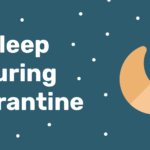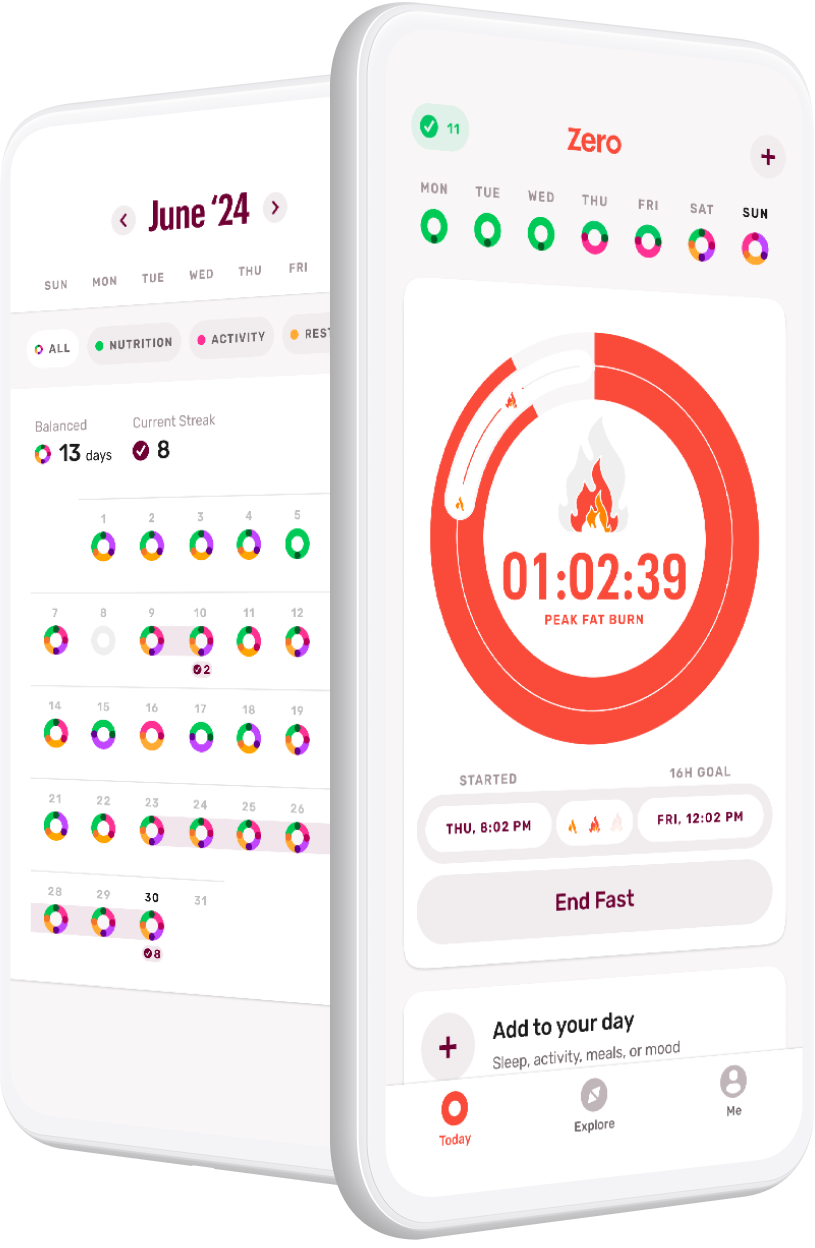Written and medically reviewed by Rich LaFountain, PhD
Many people hear the term circadian rhythm and immediately think of sleep. That’s not wrong, but there is so much more to circadian rhythm than just getting some shut-eye. Your circadian rhythm is actually a full 24-hour cycle during which your body coordinates cellular health and molecular function — and it’s essential for overall health and longevity.
Circadian Rhythm Is a Predictor of Longevity
In scientific terms, circadian rhythm describes a natural pattern of cellular operation in which specific signals are timed to coincide with rest and waking activity throughout a 24-hour cycle. In simpler terms, circadian rhythm is an underlying process that helps the cells in your body keep everything functioning normally.
Circadian rhythm is a key component of longevity. For evidence, we can look to shift workers. Approximately 20% of the global workforce is scheduled for night shifts or, even worse, works a rotating shift schedule. These individuals have an elevated risk of metabolic disease and psychiatric disorders, due in large part to circadian rhythm misalignment caused by signals outside of their control. But this is far from a hopeless scenario; we have plenty of study data that shows that leveraging your diet, fasting habits, physical activity, and other strategies can improve circadian rhythm to bring about more alignment, even if you have a hectic schedule.
Circadian Rhythm “Clocks”
From the minute you wake up, your body starts accumulating signals (called “zeitgebers”) to coordinate and synchronize your cellular clocks. These zeitgebers are influenced by three primary factors: light, food, and movement. All three send important messages to the central clock within your brain, called the suprachiasmatic nucleus (SCN), which consists of 10,000–15,000 neurons that then distribute “clock-setting” signals to all the cells in your body.
Factors That Affect Your Circadian Rhythm
There are numerous factors that affect — and are affected by — your circadian rhythm. Some are in your control, and some are not. For example, your natural circadian rhythm alignment diminishes as you age, thanks to declining eyesight/light perception, less physical activity, and other factors. But there’s no getting around aging!
There are six circadian rhythm factors that you can affect: gene expression, hormone levels, metabolism, exercise, light exposure, and body temperature.
Gene Expression
At a genetic level, humans are diurnal creatures, meaning our genetics have programmed us to be active during the day and to sleep at night. Genes are pre-determined at conception, but you can work at optimizing genetic expression (i.e., whether the instructions inside your DNA actually get read and produce functional changes in your cells) to support circadian rhythm, increase productivity during waking hours, stop early aging, reduce disease, and extend lifespan.
A simple example is the effect of lifting weights or doing other resistance exercises two to three times per week. This repeated activity sends signals to your active muscles to “turn up” the expression of specific genes that control the formation of new muscle mass.
Hormones
Your body coordinates and releases several hormones (i.e., chemical messengers) based upon your personal circadian rhythm typology. The most well-known hormone related to circadian rhythm and sleep is melatonin. Melatonin follows a very clear pattern: Levels are low throughout the day, increase, and then peak at night. Research suggests that this pattern of melatonin release is a powerful cue that synchronizes your body’s clock for a natural sleep-wake cycle.
In addition to adjusting around light exposure, melatonin also habituates to your sleep behaviors. Research shows that melatonin levels naturally begin to rise two hours before your normal sleep time. Therefore, keeping your bedtime as consistent as possible can help your body solidify the timing of melatonin release, which supports a healthy circadian rhythm. Supplementing melatonin can also increase levels in your body and may enhance strength of circadian rhythm signals for sleep timing. Previous studies suggest melatonin effects peak 3 to 4 hours after ingestion, so keep this in mind when timing your supplementation. In addition, it is important to avoid high glycemic index carbohydrate consumption after melatonin supplementation due to the reduction in insulin sensitivity melatonin produces.
Metabolism
Your body’s metabolism is heavily influenced by circadian rhythm, and vice versa. Your glucose and lipid levels are affected by circadian rhythm, and melatonin (that heavy-hitting hormone!) influences how your body handles carbohydrates. Research demonstrates that you are naturally more receptive to carbohydrate intake in the morning, but in the hours preceding bedtime, increases in melatonin reduce insulin sensitivity. As you might imagine, avoiding low-quality, high-glycemic-index carbohydrates after sunset — when you’re less insulin sensitive — is a wise health habit to build.
Exercise
Research suggests that exercise during daylight hours benefits your circadian rhythm, whereas exercise (especially if it’s high-intensity) after sunset can produce shifts in your normal circadian rhythm and delay sleep onset.
Consistent, lifelong exercise provides a strong, reliable signal to prevent inflammation and optimize metabolism, hormones, and circadian alignment, all of which contribute to delayed chronic disease (a.k.a. lifespan increase). Some researchers consider exercise to be one the best tools we have to keep our circadian rhythm aligned and thereby improve quality of life and lifespan.
Seasonal Shifts in Natural Light
Each cell in your body is genetically set up to operate on a 24-hour light-dark cycle. Light signals during the day are received by your eyes, and that information is shared directly with the central clock within your brain, which disperses the message throughout your entire body.
Seasonal shifts may impact your circadian rhythm; however, you can engage in a variety of healthy behaviors to help improve and align signals, regardless of your geographic location, season, or short-term weather scenario. Considering the importance of circadian rhythm to your health and longevity, it’s a good idea to develop habits that leverage physical activity, diet, and light exposure to promote alignment, especially when your environment does not provide ideal signals.
Body Temperature
Temperature provides both an internal and external cue to your body that affects your circadian rhythm. Externally, temperature receptors on the skin send information to your brain in an effort to regulate your core body temperature.
Although body temperature is tightly controlled, small changes serve as important signals that affect the entire body, from immune function to enzyme activity. They also trigger the release of hormones that control wakefulness and sleep. Therefore, research suggests body temperature can be a primary regulator of circadian rhythm when light signals are disrupted or misaligned. For instance, increasing your skin temperature (and thereby reducing your core body temperature when the heat is removed) before bed can help promote circadian alignment and improve sleep. Temporary heat exposure via sauna or hot water bath close to bedtime are good options. Research reports that people experience sleep improvements lasting 1–2 nights after using a sauna. If pre-heating strategies are cumbersome, then consider modest cooling of your sleeping environment which models the natural temperature declines at night, reduces core body temperature, and supports circadian signals that promote quality sleep.
Circadian rhythm influences our health all the way down at the cellular level and has powerful effects on our longevity. Each day our bodies incorporate abundant external signals into a coordinated “body clock” that does much more than just determine sleep. In order to maximize health and lifespan, we can play an active role in facilitating alignment of our circadian rhythm and, in turn, increase our resilience to disease and aging-related conditions.
- Debunking 3 Myths Around Fasting and Thyroid Health - April 15, 2024
- Breaking Down Fast Breakers: How to Tell If Something Will Break Your Fast - March 4, 2024
- GLP-1s and Weight-Loss Medications vs. Lifestyle Interventions: What’s Right for You - February 5, 2024


